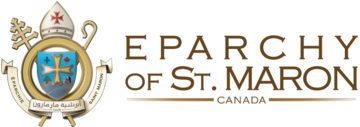4 DECEMBER
SAINT BARBARA
Information about the life and martyrdom of Barbara comes from a seventh-century ADaccount, probably originating in Egypt. While the east retains a long history of the martyrdom of Barbara, the west has relegated her life to that of a legend. According to this legend, Barbara’s father, Dioscorus, imprisoned Barbara in a tower in order to keep her pure. When Dioscorus learned that Barbara had been baptized a Christian, he condemned her by the civil authorities and beheaded her. Barbara is the patroness of those confronted with sudden death and those involved in battles. Barbara is often referred to as the greatest among women martyrs.
In Lebanon, the children celebrate her feast day in the same manner as Halloween is celebrated in the United States.
20 DECEMBER
SAINT IGNATIUS OF ANTIOCH
Ignatius was a convert from paganism, probably of Syrian origin. He was a close disciple of John the Evangelist and possibly the third successor of Peter to the See of Antioch. As a prisoner, he was condemned to death because of his Christian faith, he wrote seven letters during his journey from Antioch to Rome.
This bishop is esteemed as a great leader in the Antiochene church because of his teachings and prophetic inspiration. It is under the stewardship of this bishop that the three-fold structure of the priesthood, bishop, priest and deacon, was clearly formulated. He was also the first to use the term ‘’Catholic’’ in reference to the Church of Christ.
Ignatius himself wrote:
‘’Be eager, therefore, to be confirmed in the commandments
of our Lord and His apostles, so that whatever you do may
prosper in body and in spirit, in faith and in charity in the Son
and Father, and spirit, in the beginning and in the end, along
with your most reverend bishop and the priests… and the
deacon… Be obedient to your bishop and to one another,
as Jesus in His human nature was subject to the Father and
as the apostles were to Christ. In this way there will be union
of body and spirit.’’
His letters reveal him as a man totally dedicated to Christ and yearned for martyrdom.
Ignatius is especially venerated in the eastern churches, especially those of the Antiochene branch. The Maronites and the Orthodox celebrate his feast on December 20. The Syrians commemorate him on November 16 and January 29.
26 DECEMBER
PRAISES OF THE MOTHER OF GOD
In Palestine at the time of Jesus, the birth of a boy was the cause of great joy. When the time of the birth approached, friends and musicians gathered at the house. When the birth of a boy was announced, everyone was jubilant and started singing. It is still the custom in the Middle East to rejoice on the occasion of the birth of Jesus. Friends and relatives hurry to congratulate the happy parents.
Of course, such a celebration did not occur for Jesus, who was born in a manger, far away from friends. The angels themselves replaced the friends and the musicians.
It was the custom of the early church to celebrate not only the birth of the Saint, but also the feast of the parents of that Saint. After the birth of Mary, the feast of Ann and Joachim is celebrated. Therefore, the eastern celebration of the praises of the Mother of God is probably very ancient. It probably dates back to the time of the discussion concerning the title, Theotokos, since the feast commemorates only Mary and Joseph.
Mary is praised for the virtues already manifested in the Sundays preceding the feast of the birth of our Lord: her faith, her love and charity, her zeal, her silent trust in the Lord, and of course, her virginity both before and after the birth of Jesus. The notion of Mary’s perpetual virginity is an important topic for the Aramaic fathers. Ephrem wrote of Mary as a true mother, but a mother whose virginity remains intact. For James of Serugh, it was blasphemous to assert that Mary did not remain a virgin after the birth of Jesus.
However, the principal object of the feast is Mary’s pre-eminence as the Mother of God. It is from this that her greatness flows. In praising Mary, the Mother of God, Ephrem says: ‘’to replace the bitter fruit which Eve plucked from the vine, Mary gave to mankind her sweet fruit. The virginal vine yielded a cluster of grapes whose wine will bring consolation to those who weep. Mary says “come to me you wise and intelligent herald of the Spirit, you prophets… you farmers who sowed and slept in hope, arise and exult at the sight of the harvest of fruit. Look in my arms, I hold the Wheat of Life, which gives bread to the hungry and satisfies the needy. Rejoice with me because I have received the Sheaf of Joy.’’ For Ephrem, the Eucharist is nothing other than another aspect of the Incarnation; it is the same reality under a different form.
On the feast of the praises of the Mother of God, the church praises Mary, the New Bark, loaded with a treasure, sailing with the richness upon the waves of the sea.

